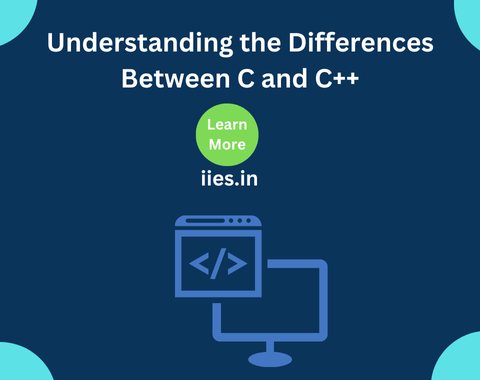C and C++ are two widely used programming languages, each catering to different development needs. C is a procedural language focusing on functions and procedures, while C++ extends C with Object-Oriented Programming (OOP) capabilities, making it a multi-paradigm language.
- C relies on procedural programming and structures for data grouping but lacks OOP features like classes, inheritance, and polymorphism.
- C++ introduces OOP concepts, function and operator overloading, namespaces, and the Standard Template Library (STL), enhancing code reusability and abstraction.

